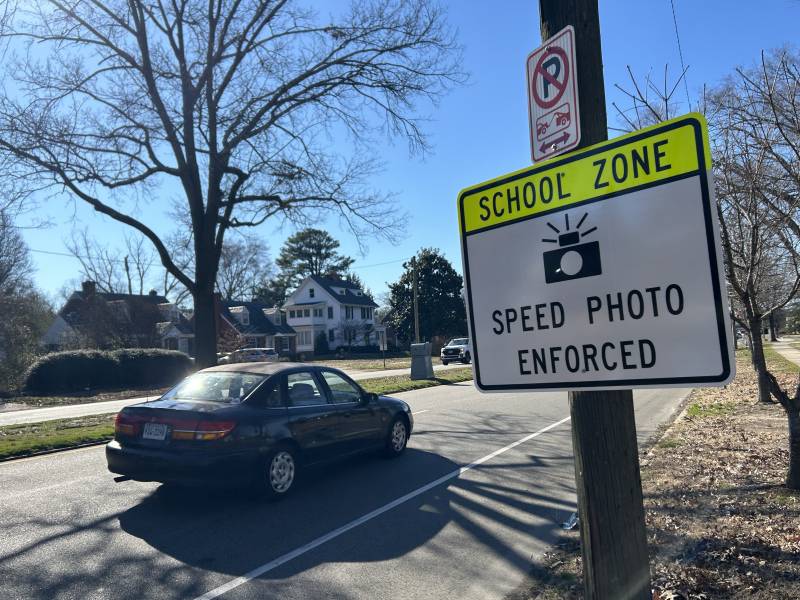But in practice, that hasn’t always been the case. Studies in Washington, D.C., and Chicago show that tickets from automated enforcement are paid disproportionately by people of color.
“Automated enforcement has become a significant revenue driver for the city,” says Olatunji Oboi Reed, who runs a nonprofit in Chicago called Equiticity. “And it’s financially harmful to Black and brown people.”
For decades, Reed says, Chicago has failed to fix some of the most dangerous intersections or to redesign roads to discourage speeding and encourage biking or public transportation.
“The only solution we get is automated enforcement,” Reed says. “That’s not a failure of Black people who speed and run red lights. That’s a failure of the transportation sector in Chicago.”
New laws expand the reach of cameras
Speed camera advocates insist they’ve learned from those mistakes.
“We need to make sure that our cities have all the tools that are effective that they need to stop the carnage,” says Laura Friedman, a state assemblywoman in California who sponsored the state law authorizing automated cameras as part of a pilot program in six cities across the state.
Friedman, who was formerly the mayor of Glendale, California, says local communities will be involved in choosing locations for those cameras.
“We make sure it can’t be a money grab because the money can only be used for physical speed-lowering improvements on the same streets where you’re using the cameras,” she says. “So it’s really about changing the culture and slowing traffic down.”
Speed cameras have been used for over a decade in New York City, and safety advocates there say they’ve worked.
“This is really a model to other cities about how automated enforcement can roll out equitably,” says Danny Harris, the executive director of the nonprofit Transportation Alternatives, “because of the way it’s rolled out across the city.”
The cameras have succeeded in changing drivers’ behavior, Harris argues, noting that drivers who get a first ticket are 60% less likely to get a second one.
“It should be very easy,” Harris says. “If you don’t want a ticket, don’t speed.”
Copyright 2024 NPR. To see more, visit npr.org.

